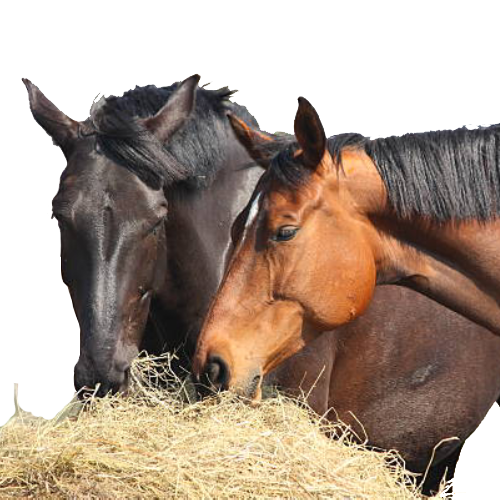
Free Delivery
On Orders Over £40
On Raw Orders Over £100

Feeding horses properly is essential for their health and well-being. The specific diet and feeding regimen for a horse can vary based on factors such as their age, weight, activity level, and any underlying health conditions. Here are some general guidelines for feeding horses:
1. Forage: The foundation of a horse’s diet should be high-quality forage such as hay or pasture. Horses are herbivores and need fibre for proper digestion. Provide clean, dust-free hay or access to pasture grass, ensuring it is free from toxic plants.
2. Concentrates: In addition to forage, horses may require concentrates such as grains or commercially prepared feeds. The type and amount of concentrate feed will depend on the horse’s workload and nutritional needs. It’s important to choose feeds designed specifically for horses and avoid feeding excessive amounts to prevent digestive issues.
3. Water: Horses should have access to clean, fresh water at all times. Ensure they have a reliable source of water and regularly check and clean their water troughs or buckets.
4. Supplements: Some horses may require additional supplements to meet their nutritional needs or address specific health concerns. However, it’s crucial to consult with a veterinarian or equine nutritionist before adding any supplements to your horse’s diet to ensure they are appropriate and necessary.
5. Feeding Schedule: Horses generally thrive on regular feeding schedules. Divide their daily ration into multiple small meals to mimic their natural grazing behaviour. Avoid large meals or long periods without food to prevent digestive issues like colic.
6. Monitor Body Condition: Regularly assess your horse’s body condition score (BCS) to determine if adjustments to their diet are needed. Maintain an appropriate weight for your horse’s age, breed, and activity level. Consult with an equine professional if you need assistance in evaluating your horse’s body condition.
Remember, these guidelines provide a general overview, and individual horses may have unique dietary requirements. Consult with a veterinarian or equine nutritionist for personalised advice based on your horse’s specific needs and circumstances.
Sign up to get exclusive deals in your inbox.
We won't share your email address.